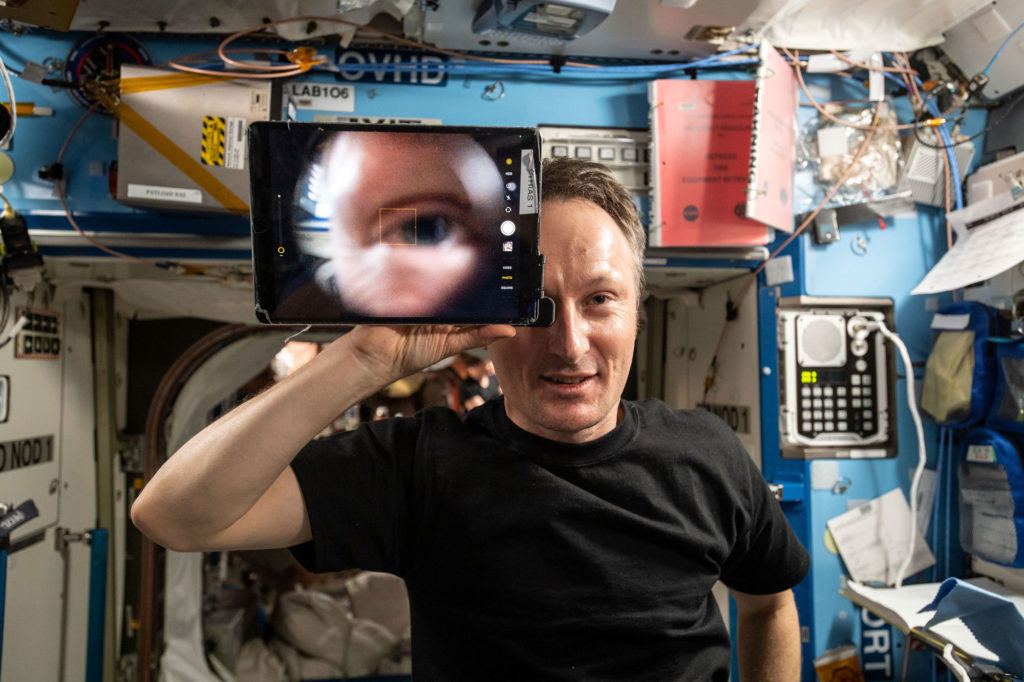The retina is a window into the brain
Mobile examination of the retina is an innovative highlight of German ESA astronaut Matthias Maurer’s ISS Cosmic Kiss mission. The experiment is designed to visualise changes in the optic nerves and in the brain (SANS – Spaceflight Associated Neuro-ocular Syndrome). Alongside cosmic radiation exposure, this is among the most serious risks posed by stays in space.
In microgravity, body fluids permanently shift towards the head, which can cause blood pressure regulation and microcirculation disorders, accompanied by an increase in intracranial pressure. These changes in the astronauts’ eyes and brain must be subjected to a targeted therapy with countermeasures (medication, through pressure cuffs on the thighs or a negative pressure sleeping bag) to ensure the preservation of the human brain’s cognitive and mental performance.
Retinal diagnostics can be used for the non-invasive diagnosis of the condition of the optic nerve, microcirculation in the brain and increased intracranial pressure. Using a small lens attached to smartphones or tablets via an adapter, images and videos of the human retina can be recorded to monitor pathophysiological changes in space. This is also highly relevant on Earth for mobile emergency diagnosis of craniocerebral trauma, which affects almost 10 million people worldwide every year.
Compared to previous eye and retinal cameras, this mobile procedure has a much lower cost and is simpler. Images of the optic nerve and videos of the retina are transmitted via crew tablets from the ISS to the ground and can be used by the crew themselves or by specialists in the fields of ophthalmology, emergency medicine, neurology, or for individual health risk assessment. This technique could also be used for patients in remote or developing regions who have no (or limited) access to specialised medical care.
Link:
German Aerospace Center (DLR)
Institute of Aerospace Medicine/:envihab
Technology Transfer
Dr. Jürgen Drescher · Email juergen.drescher@dlr.de
